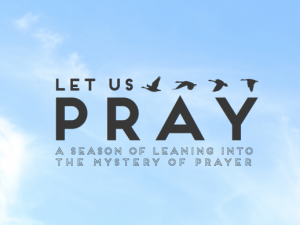Series: “Let Us Pray”

Pastor Rich Knight
Central Congregational Church
March 10, 2019
Psalm 141:1-5
Matthew 6:7-13
We’re starting a series of sermons this morning, entitled, “Let Us Pray.” – each Sunday during Lent we’ll delve into this essential travis scott air jordan 1 retro low og black olive release date fall 2024 Christian practice. We’ll look at various ways to pray, and we’ll practice different forms and techniques for prayer.
Throughout this series we’ll try to reflect deeply and honestly on the subject of prayer. We’ll ask honest questions like – why is prayer so hard? Why don’t I feel great about my prayer life? Why don’t I pray more? Why am I so distracted in prayer? What is prayer?
Today we’ll talk about the Purposes of Prayer. First, let’s look at two passages.
Psalm 141:1-5
I call upon you, O Lord; come quickly to me; give ear to my voice when I call to you.
Let my prayer be counted as incense SchaferandweinerShops Netherlands - adidas weightlifting suit australia open schedule - ‘Orketro’ sneakers ADIDAS Originals before you, and the lifting up of my hands as an evening sacrifice.
Set a guard over my mouth, O Lord; keep watch over the door of my lips.
Do not turn my heart to any evil, to busy myself with wicked deeds in company with those who work iniquity; do not let me eat of their delicacies.
Let the righteous strike me; let the faithful correct me. Never let the oil of the wicked anoint my head, for my prayer is continually against their wicked deeds.
Matthew 6:7-13
“When you are praying, do not heap up empty phrases as the Gentiles do; for they think that they will be heard because of their many words. Do not be like them, for your Father knows what you need before you ask him.
“Pray then in this way: Our Father in heaven, hallowed be your name. Your kingdom come. Your will be done, on earth as it is in heaven. Give us this day our daily bread. And forgive us our debts, as we also have forgiven our debtors air jordan 23 howard university pe. And do not bring us to the time of trial, but rescue us from the evil one.

According to a number of Gallop Polls, Americans believe in prayer. Americans are a praying people. More people will pray this coming week than will exercise, drive a car, make love or go to work.
- 9 out of 10 of us pray regularly.
- 3 out of 4 Americans say they pray every day.
I did a google search on the word, “prayer,” and in 6/10’s of a second, 920 million results were found. That’s almost a trillion!
So even though we often feel like we live in a secular age, there is still a lot of interest in prayer, and still a whole lot of people praying.
When Albert Einstein came to America he settled in Princeton NJ, and continued his work & research there for more than 20 years. One day a doctoral student asked him, “What is there left in the world for original dissertation research?” Einstein replied, “Find out about prayer. Somebody must find out about prayer.”
So we’ll see what we can find out about prayer.
Today, “The Purposes of Prayer.”
Originally, I was going to call this message, “The Purpose of Prayer,” but I realized that prayer can’t be narrowed down to one distinct purpose. There are many purposes for prayer, many reasons why every faith in the world has some form of prayer in it.
Here are 3 main purposes of prayer.

- Prayer is all about connection, isn’t it?
It’s connecting air jordan 1 mid outlet with the Divine, with God, communicating with God, communing with God. The mystics would say it’s striving for union with God, with Christ. Prayer is connection. In public, communal prayer we also connect with each other, which makes it even better.
Psalm 141 starts out like this: “I call upon you, O Lord; come quickly to me; give ear to my voice when I call to you.” He’s addressing God. He’s communicating. And he has something he wants to talk to God about – it’s this problem he has of putting his foot in his mouth – “Set a guard over my mouth, O Lord; keep watch over the door of my lips.”
Prayer is communicating with God.
“Our Father in Heaven” . . . begins the most famous communicating with God.
Philip Yancy has written a wonderful book on prayer, entitled, Prayer, subtitle, Does It Make Any Difference? Yancy describes the different types of communication and conversations that he has with his friends.
When he’s golfing with his buddies, the conversations are all over the map, and they tend to be brief, ongoing conversations as they walk 18 holes of golf.
Then he has other friends he has longer talks with, usually over coffee or lunch. They talk about bigger issues, questions of faith, politics, business & ethical decisions and so on, talking about things they mutually care about.
Then he has 2 or 3 best friends, people that he would share anything and everything – the first phone calls he’d make in a crisis. And these friends would come and have come at the drop of a hat to stay with him as long as it takes to weather the storm.
And often in those moments of crisis, there can be long periods of silence, just sitting together in an intimate bond of friendship and loving support.
Yancy says, “Friendship with God encompasses each of these levels of communication.” God cares about the ordinary, every day mundane things of life, and God wants to walk the fairways of life with us. God also cares about the larger issues of life and of our lives, and those issues call for longer times of prayer and reflection. But God is also One we can sit in silence with and receive strength, comfort and hope.
Prayer is keeping company with God. It’s connection.
- Secondly, Prayer is Re-allignment – aligning our lives with the Will and Ways of God.

This is clearly one of the primary purposes of prayer. In the prayer that Jesus gave us, he expressed it as, “Thy will be done.”
On the night before the Cross, Jesus was praying in the Garden of Gethsemane, and he asked to be spared the suffering. He asked for another way to accomplish his mission. But he ended his prayed that night with what he had taught his disciples to pray, “Nevertheless, Father, not my will be done, but thy will be done.” (Luke 22:42)
Prayer helps us align our lives with the will of God.
In Psalm 141 the writer asks for a re-allignment in the face of temptation: “Do not turn me toward evil . . . . Bring faithful, righteous people into my life to keep me on track.” (vss 4-5)
Jesus once said, “Love your enemies. . . . Pray for those who persecute you.” – Matt. 5:44. Why? Why pray for one’s enemies? Because it’s hard to hate those you’ve been praying for. It’s easier to be kinder, more patient and constructive towards the difficult people in our lives, if we’ve been praying for them. Our wills and desires start to get aligned with God’s will and desires.
One author put it this way: “Prayer can redirect anxiety to hope, bitterness to freedom, insecurity to courage, and stuck-ness to vision.” (MaryKate Morse in A Guidebook to Prayer)
Prayer is Connection. Prayer is Re-alignment. And thirdly,
- Prayer is Love.

Prayer is embracing the love God has for you. Prayer is receiving God’s love and expressing your love in return and striving to live in that love.
To pray is to love, it’s to strive to fulfill the greatest commandment according to Christ, to “love God with all our hearts, souls, minds and strength.”
Richard Foster has written two classic books on prayer. In one of them he writes: Prayer is, “nothing more than an ongoing and growing love relationship with God, the Father, Son and Holy Spirit.”
St. Augustine said: “True, whole prayer is nothing but love.”
The mystic Julian of Norwich wrote: “The Trinity is our Everlasting Lover.”
If that seems too far out there, I’ll bet some of you know John Wesley’s traditional hymn: “Jesus, Lover of my Soul.”
Prayer is not about gritting our teeth and dutifully reporting to God. Prayer is about falling in love with the God who’s fallen in love with you.
It’s “leaning in” to God’s Love!
It’s positioning ourselves in the current of God’s love and power.
Think about it. Let’s pray about it:
Lord, as the disciples said to you long ago, “Teach us to pray.” Teach us to love, to seek, to be still, to know and to enjoy your loving presence. Amen.
